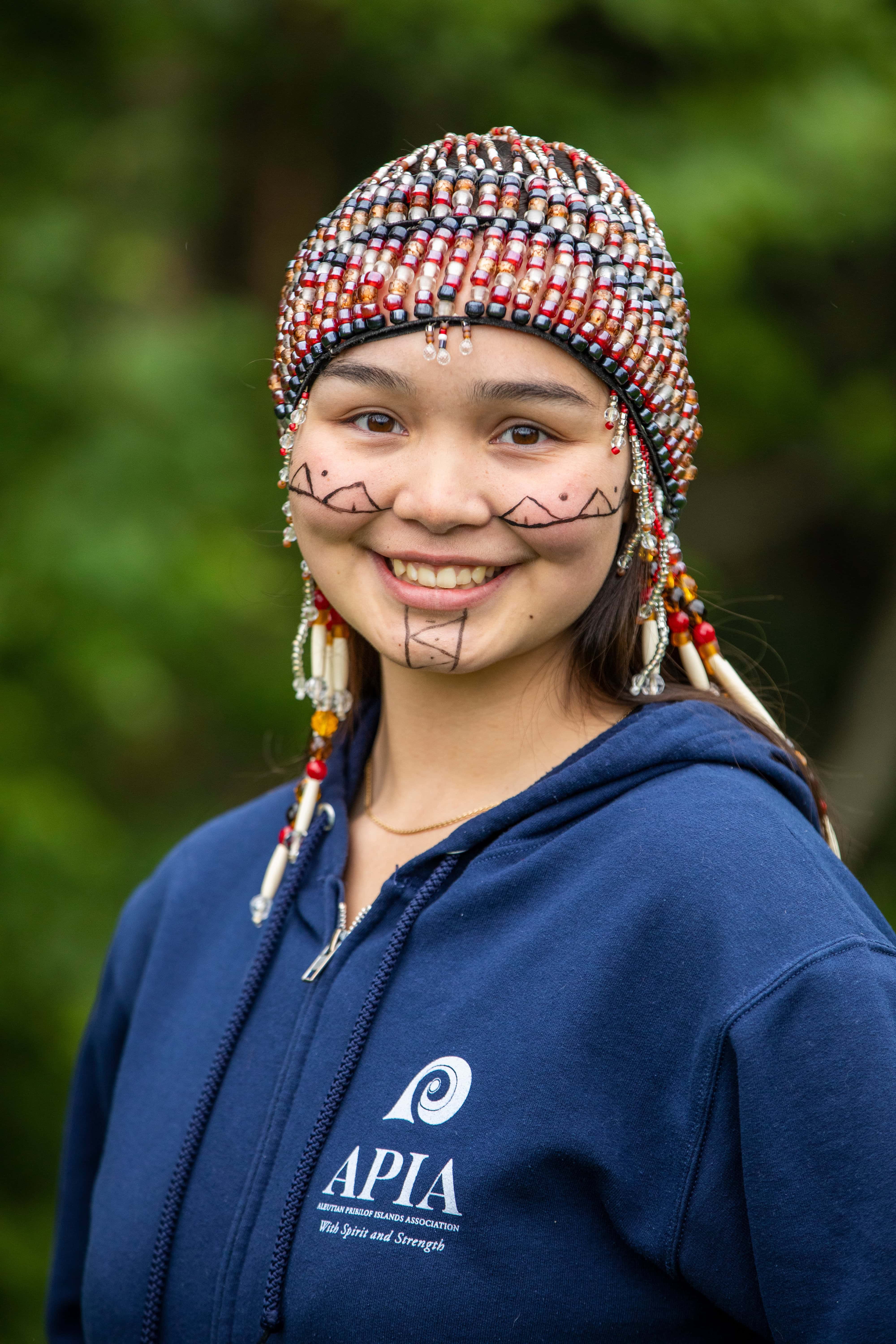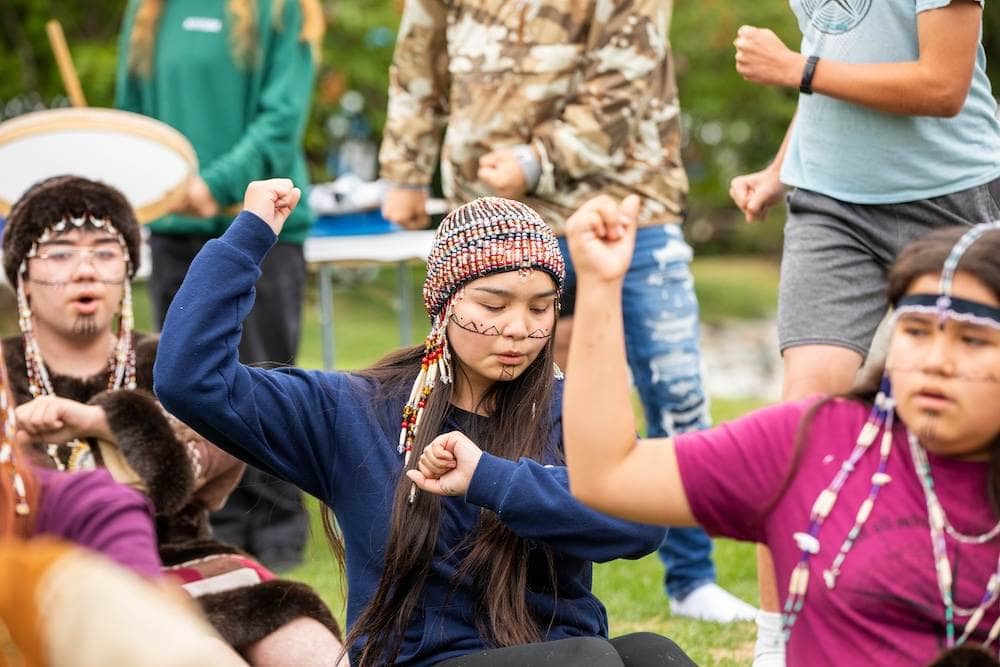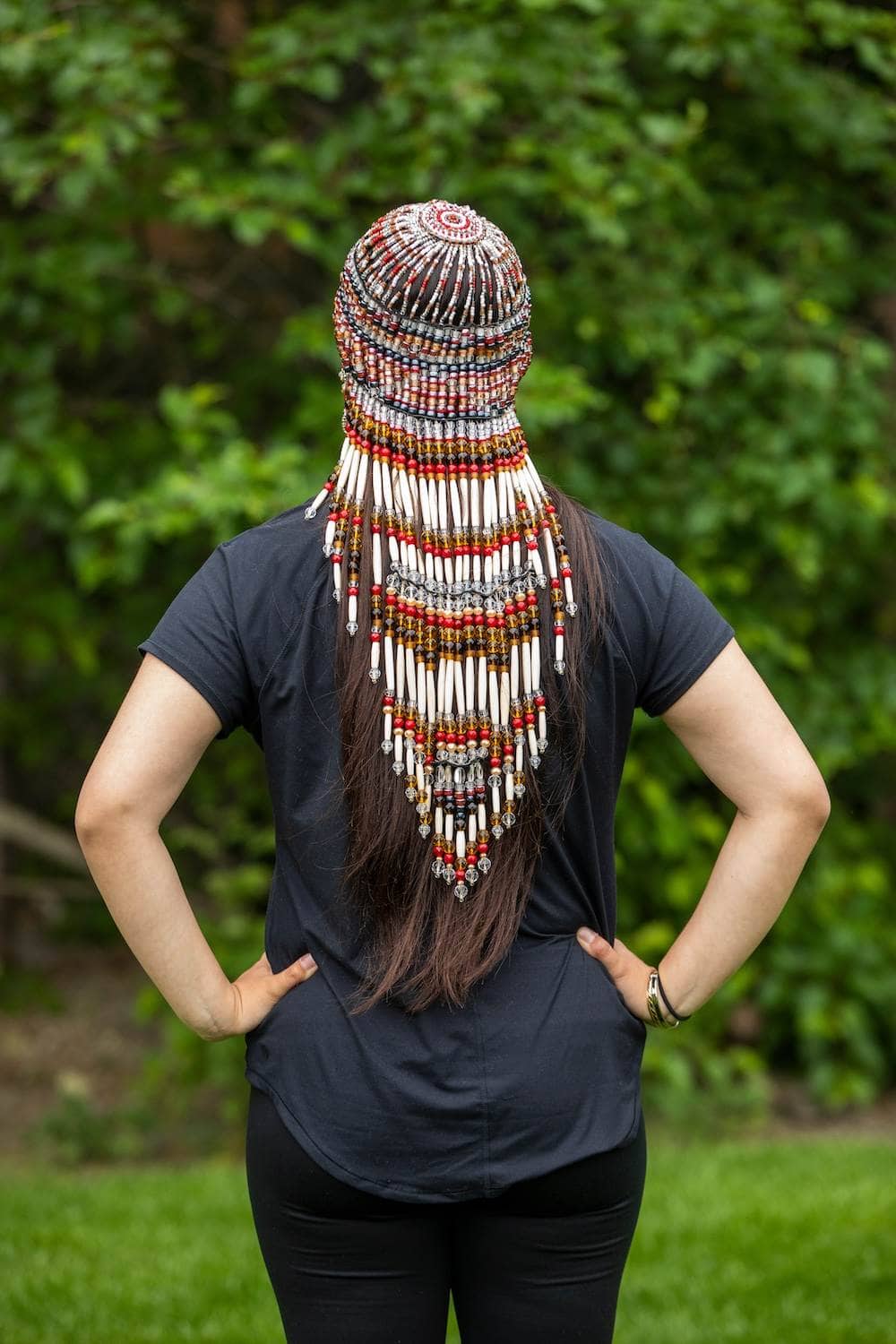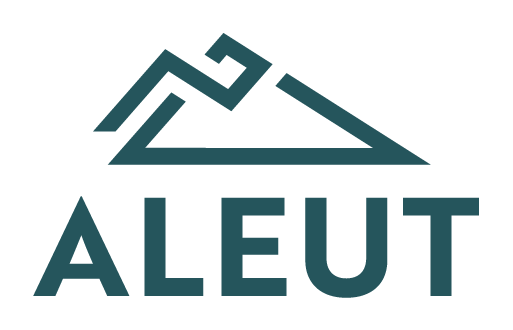Charlotte Rutherford, a 17-year-old senior at Service High School, is on a noteworthy journey of Unangam Tunuu revitalization and Unangax̂ cultural celebration – all while navigating the rhythms of her bustling teenage life. Though her language abilities have grown astronomically in the last few years, her journey into Unangam Tunuu and Unangax̂ culture began with a simple invitation from her cousin Erin.
“I first did APIA’s culture camp in 2017 when I was 12 years old. Our cousin Erin stayed with us, and we ended up signing up almost the whole family to attend APIA’s Anchorage Urban Culture Camp,” Charlotte recalls. It was an opportunity that would change her life.

Aleutian Pribilof Island Association’s (APIA) culture camp was supposed to be only a two-week experience, but Charlotte’s enthusiasm carried her through every weekday, except for Friday, for the next several weeks. “They just kept telling me when and where things were happening, so I would go and attend them and participate,” she explains.
Charlotte’s first internship with APIA began immediately afterwards. Over the years, she grew from a volunteer to a dedicated team member, pushing her out of her comfort zone.

“Ultimately, I like to meet new people, but I also don’t like putting myself out there, so it’s the best of both worlds.
I get to meet a lot of people who are like me, but also many people who are not like me.”
Her dedication soon extended to the Anchorage Unangax̂ Dancers, a group she joined in 2017. “My language work gave me the motivation to join the Anchorage Unangax̂ Dancers,” she says, adding that, “dancing in general makes me feel good; I love the drums and listening to the Unangax̂ beats.”
Charlotte’s commitment to Unangam Tunuu and her cultural heritage doesn’t end with her own journey. She’s dedicated to sharing this passion with others, bridging generations, and preserving Unangax̂ culture.
“It’s amazing! I feel so very proud,” Charlotte’s mother Michelle adds, as she has watched her daughter’s involvement in Unangax̂ dance and language revitalization grow over the years.
Michelle was inspired by her daughter’s involvement and has since spent time practicing Unangax̂ traditions herself.
“When Charlotte started in the dance group, there were a lot of adults there, and the dancers asked all of the parents to join. ‘Why not?’, I thought,” Michelle says. She, too, began to participate in the Unangax̂ Dancers, volunteering to sing for the dance practices.
Charlotte’s dedication to her culture and community extends into her daily life. Her schedule is a testament to her commitment to balancing Unangam Tunuu revitalization, cultural activities, and family responsibilities. “I plan out my day, give myself a tentative schedule,” she says. And from the moment she wakes, her days are filled with school, extracurricular activities, and volunteering.
This year, Charlotte is preparing to participate in the Native Youth Olympics (NYO), is member of the National Art Honor Society and the Partners Club, and in her free time, she crafts jewelry, creating unique pieces, like rings and metal beads. “I am making myself new regalia,” she adds with a smile.

For Charlotte, every moment is an opportunity to learn, grow, and contribute to her community. Her achievements go beyond cultural preservation; she won second place in a Nobel Peace Prize Poster Contest in the sixth grade, an honor she achieved while maintaining excellent grades.
Though both Charlotte and Michelle acknowledge that some of their family members from older generations still grapple with the changing cultural landscape, the impact of Charlotte’s work on Unangam Tunuu revitalization is palpable within her family and community.
“It wasn’t very cool or acceptable to be Native when we were growing up,” Michelle reflects. “Now, some of my relatives are starting to see how special it is to get to speak and learn Unangam Tunuu and learn our culture.”
For young Unangax̂ youth who aspire to follow in her footsteps, Charlotte offers this advice: “Don’t think about what everybody else will say or think. Teens sometimes view this as uncool, but you shouldn’t think about that. Just stick with it, and eventually, you’ll start to understand the meanings of words and will be able to recognize patterns, and you’ll realize that you’re actually learning Unangam Tunuu and you’ll want to keep going!”
Charlotte’s journey is a testament to the power of youth, dedication, and pride in oneself and heritage. Her commitment to preserving Unangax̂ culture and language is a source of inspiration for her community, bridging generations to ensure that Unangam Tunuu continues to thrive for years to come.
Charlotte’s story was submitted by her mother, Michelle Rutherford. If you would like to submit a story about an incredible shareholder or descendant in your life, please visit our submission form here.

